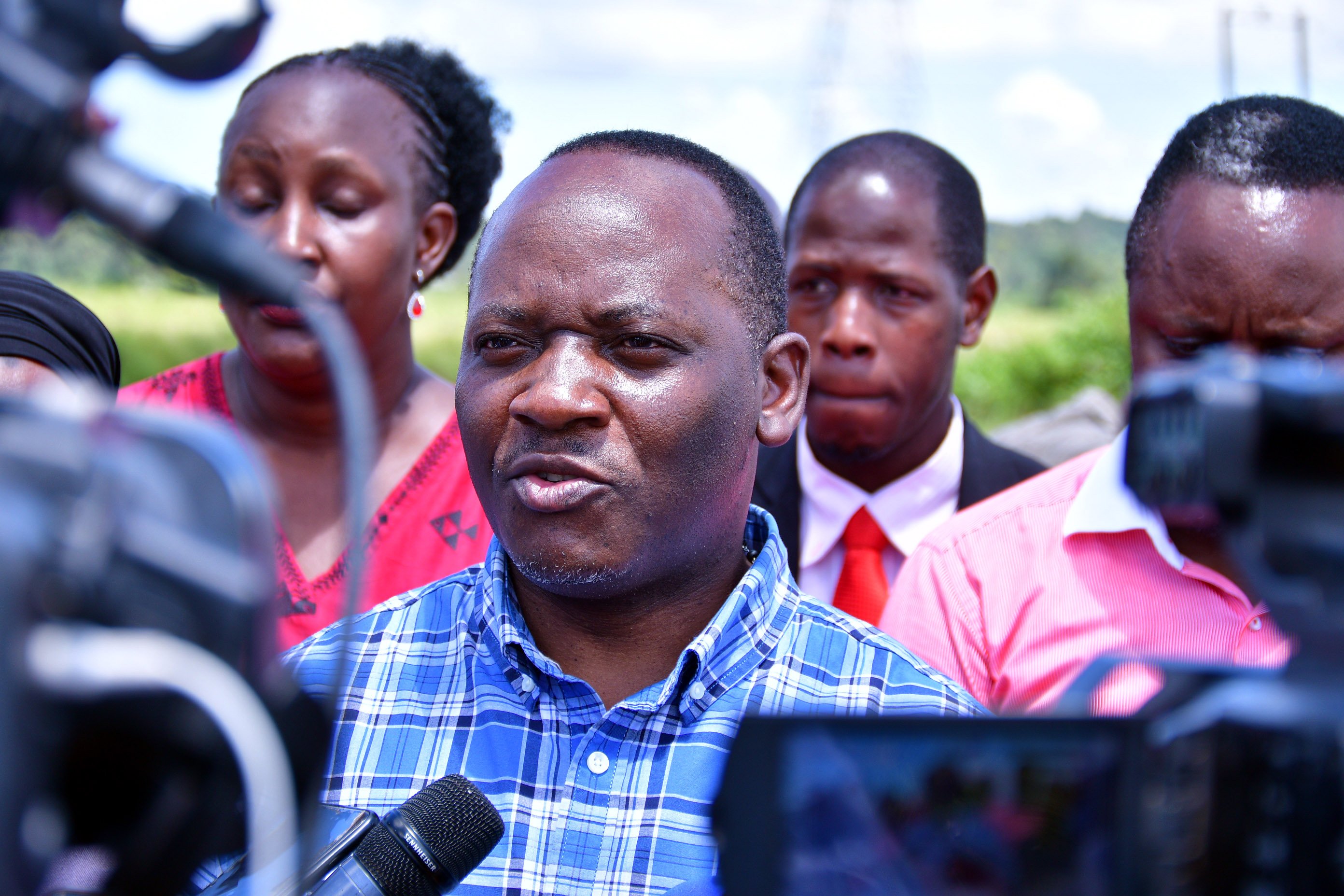Prime
Opposition meet to discuss electoral reforms

Leader of Opposition, Mr Mathias Mpuuga, addresses journalists after inspecting Katonga River Bridge on Kampala-Masaka highway on May 15, 2023.
What you need to know:
- Mr Mathias Mpuuga, the Leader of the Opposition in Parliament (LoP) said the workshop will conduct a constitutional review, which will inform much-needed electoral reforms.
Members of opposition political parties are expected to converge next week for a three-day consultative workshop in a fresh push for constitutional and electoral reforms, even though previous proposals remain on shelves.
Mr Mathias Mpuuga, the Leader of the Opposition in Parliament (LoP) said the workshop will conduct a constitutional review, which will inform much-needed electoral reforms. The stakeholders will afterwards carry out country-wide consultations that will inform a blueprint to improve governance and management of elections.
“Constitutional reforms are the major issues constraining the country’s political transition, a national conversation must begin in earnest,” he said
The workshop to be attended by all opposition legislators, party leaders, opinion leaders, civil society and academia, mirrors a 2014 National Consultative Forum that made a raft of proposals, a bulk of which have remained on paper with the opposition accusing the current government of sidestepping pivotal reforms.
A number of recommendations made by the Supreme Court in 2016 have also been ignored by the government.
“The opposition must offer leadership. It would be asking too much from a clearly tired and uninspired regime to lead a conversation about reforms and transition. We are talking about the initiative. The Minister of Justice has his ministers and they do not seem interested in this process. We shall move in our own right as a duty to country and posterity,” Mr Mpuuga said.
Ms Charity Ahimbisibwe, the Executive Director at Electoral Laws and Governance Institute admitted there is a sense of pessimism as to whether there is relevance in making more proposals, including among legislators she has spoken to, but argues that elections will continue to worsen if no reforms are effected.
“Government dragging its feet is unfortunate but there is no alternative. We are doing lobbying and advocacy. There is still a lot of stakeholder consultation and lobbying to be able to come up with one document which embodies everybody’s aspirations and desires,” she said.
A fortnight ago, this publication reported that the Independent Electoral Commission had fronted five proposed reforms, including voting rights for prisoners and diaspora, regulation of campaign financing, and for a law to be enacted to legalize and regulate the deployment of technology in the conduct of elections.
Other suggestions include early voting and verification of documents informed by court directions, while others are in-house ideas.
These select proposals raised queries into the fate of other proposed reforms that have over time been fronted, but not considered.
Mr Paul Bukenya, the Commission spokesperson explained that they are not the sole originators of reforms, adding that more would be discussed amid ongoing stakeholder engagements.
Key reforms contained in the Uganda Citizens’ Compact on Free and Fair Elections, proposals by the Supreme Court and other demands by the opposition in a flopped Private Member’s Bill include restoration of presidential term limits to two five-year terms, removal of army representatives from Parliament, repeal of the Public Order Management Act (POMA), and reducing the size of Parliament and cabinet.
The others included free and fair usage of media by candidates, the right for media to report in real-time votes counted and winners announced at polling stations, clearly defining the role of security forces and militia groups and separating the state from a ruling party.
Others include the creation of an Independent Electoral Commission, whose commissioners are vetted and appointed by impartial actors, unlike the current practice where the President (who has been a candidate as well), picks the commissioners.
Among the Opposition proposals were for presidential aspirants who garner 10 per cent or more of the total votes cast to become automatic ex-officio Members of Parliament, reinstatement of a presidential term and age limits, and the introduction of a federal system of government.
When members of the Opposition in Parliament attempted to introduce electoral reform legislation through a Private Member’s Bill, they were advised to submit their suggestions to the Justice Ministry and harmonize positions with the government.
However, none of these featured when then-Attorney General William Byaruhanga tabled five reforms by the government.
The governments instead introduced amendments barring political parties from having links with pressure groups and banning party members from running as independents. These reforms also banned Cameras, mobile phones and any related recording devices from accessing a polling area.




